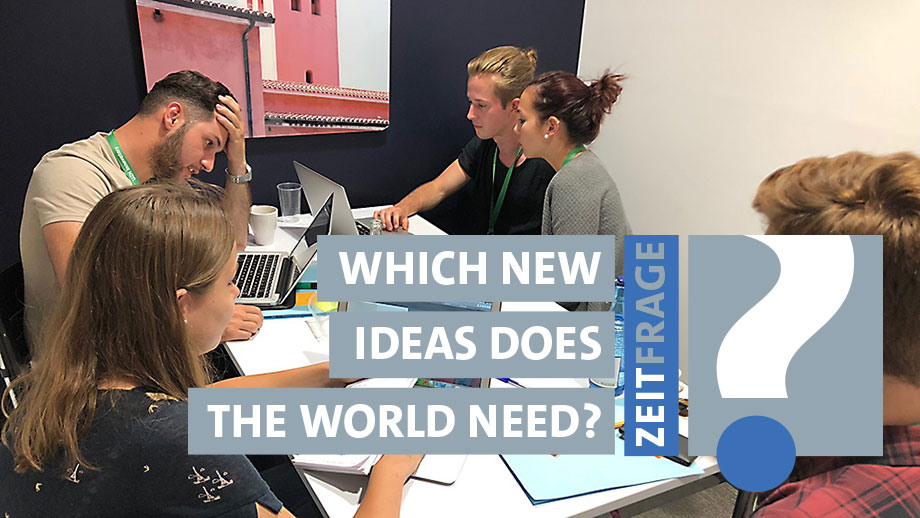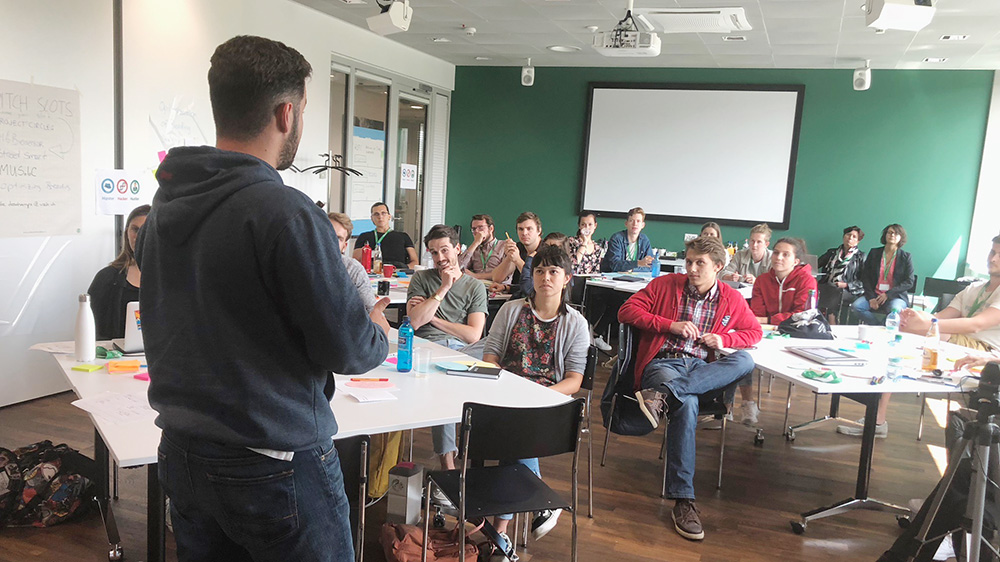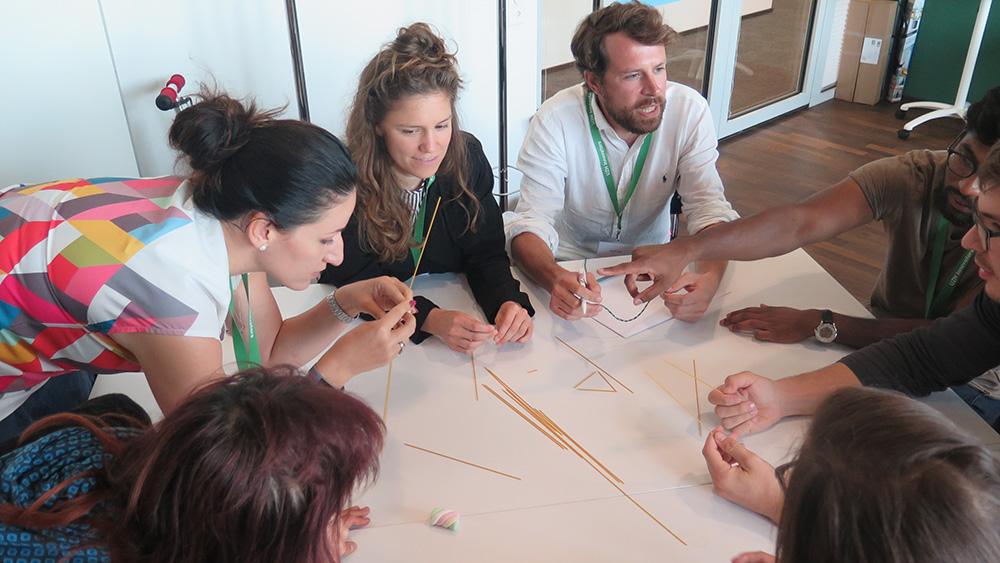Meet the Hipsters, Hackers and Hustlers
So, what are you? Hipster, hacker or hustler? This was one of the first questions participants asked of each other at the UZH Innovator Camp’s speed dating session. The idea was to find out which of the three entrepreneurial categories best suited their personal strengths. Hipsters are designers – the ones who ensure that the product is attractive to users and adds quality to their lives. Hackers are the developers, who make sure that the technology runs smoothly. And hustlers are the managers whose job it is to get the company making money – and to keep it that way. The 21 participants quickly formed into five mixed teams that went on to take part in the first UZH Innovators Camp held in the middle of July.
The Innovators Camp was designed for students and young researchers at UZH, ZHdK and ETHZ who are interested in becoming entrepreneurs. Over the course of the one-week camp, the attendees – from an array of fields including science, medicine, economics, design, linguistics and psychology – tackled specific questions such as: How do we turn a project or research idea into a viable business? How do we develop the different stages of an idea until we have a successful pitch?
Hands-on approach
The camp was also about enabling participants to collaborate hands-on with other like-minded members to develop their business ideas, gain entrepreneurial skills and learn new methods, work in multi-disciplinary teams and build links with the start-up scene in Zurich.
“Bring your own idea and share your knowledge! This is how the UZH Innovators Camp works,” says Maria Olivares, head of the Innovation Group at Research, Innovation and Career Development, who organized the camp with her team and Elke Zappe, Director of the BioEntrepreneurship & Innovation Program, and the Dean of the Faculty of Business, Economics and Informatics, Harald Gall.
“By setting up the UZH Innovators Camp, we have created a place for interdisciplinary exchange – an opportunity for which there is often too little room in the day-to-day life of the university”, Olivares explains, even though mixed start-up teams are key to the success of a business project given the need to combine complementary skills and knowledge.
Intensive summer camp
The camp is run as an intensive summer camp, featuring hands-on training sessions in ideation and design-thinking plus lectures given by entrepreneurs and experts from different industries such as bio- and medtech, insuretech and game design as well as representatives from the start-up scene. The program also includes company visits.
This year, the UZH Innovators Camp was staged at the Bio-Technopark in Schlieren. Over a period of seven days, a total of five teams developed ideas that included low-cost production of leg prostheses using recycled materials, a software solution for improving breeding strategies in lab mice, intelligent sensor technology for monitoring street damages and an on-the-spot test for patients to determine their own iron levels.
Harnessing innovative potential
The young cell and molecular biologist, Deana Mohr, and her team of four were there to work on her start-up project. An expert in tissue engineering and regenerative medicine research, Mohr has acted as Clinical Project Manager and Coordinator at UZH and the UniversityHospital Zurich since 2017, overseeing a research project entitled “MUS.I.C”. Far from having anything to do with music, the abbreviation stands for Multisystem Cell Therapy for Improvement of Urinary Continence and refers to a new kind of therapy approach to prevent urinary incontinence.
Urinary incontinence is a condition that not only affects the elderly but is also particularly common among mothers after the birth of their child. In this new method designed to put an end to the affliction, the bladder-closing muscle tissue is repaired using the body’s own muscle precursor cells. A few muscle cells are extracted from the patient’s own tissue, from the lower leg for instance, and then cultivated. After the requisite minor operation, these muscles will act to stop the uncontrolled flow of urine.
It is not just the research that Deana Mohr finds fascinating, but for over two years she has also become interested in translating scientific findings into a marketable product. Mohr sees enormous potential for treating incontinent patients with this new therapy and was boosted by the positive reactions she received from the experts assisting the teams at the camp. “We have already implemented some of the input and will take more into account during the next steps of the development process,” Mohr says.
Successful start
Training sessions in pitching had been held at regular intervals throughout the week to prepare the participants for their final presentation on the last day of the camp. In his greeting from the USA, Harald Gall wished all the teams every success and emphasized once again the importance of the pitch, which must be convincing, concise and accessible at any time and in any situation. Finally, all five teams delivered their pitches to a panel of professors, experienced entrepreneurs from the life sciences and experts from the Swiss start-up ecosystem. Mohr impressed the panel with her MUS.I.C project, and she and her team won an Excellent Business Pitch Award. Besides Deana Mohr, two other projects received awards (see box.)
Asked what lies ahead, Deana Mohr doesn’t hesitate: “The to-do list may be long, but with the energy I have got from the camp, I’m feeling very motivated to put our business idea into practice.” Mohr will also receive support from the BioEntrepreneurship & Innovation (BEI) program, which she is due to attend this year too.
Maria Olivares is also happy with the results of the first UZH Innovators Camp. “The interest in the UZH Innovators Camp was huge”, the organizer says. “We managed to inspire students and young researchers and awaken their entrepreneurial spirit. The reactions from all participants and speakers were overwhelming. There will be more camps to come.”


